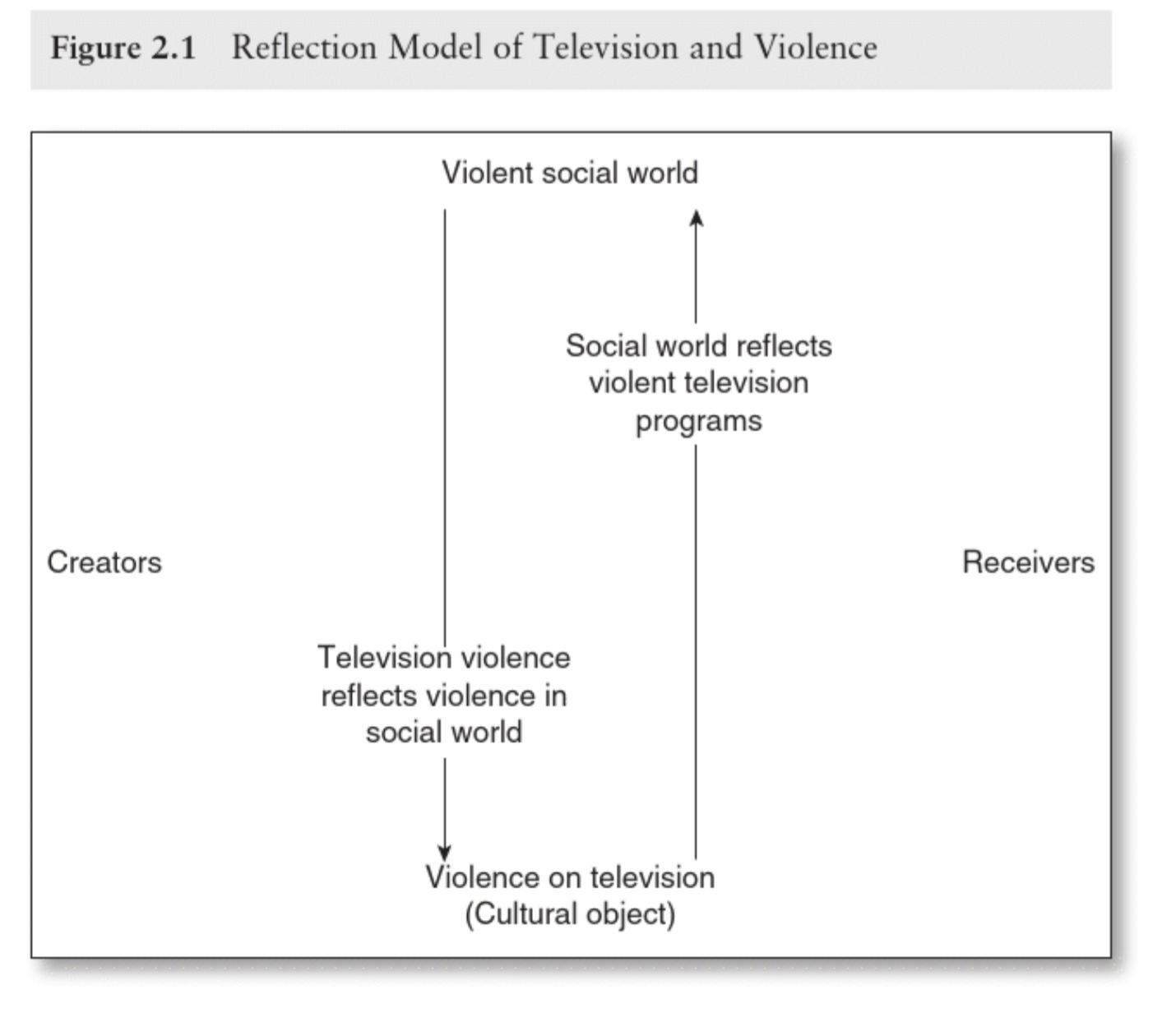Week 2 lecture slides
Page 3: Lecture Focus
Recap: Overview of culture from last week
Focus of Current Week: Sociological engagements with culture, encompassing:
Culture as a way of life
Culture as a separate sphere
Culture as meaning making
Assessment: Important details regarding the Reflective Journal
Page 4: Understanding Culture
Nature of Culture: A complex term with multiple meanings
Keywords mentioned include: population, hegemony, art, tradition, etc.
Page 5: Raymond Williams on Culture
William's Assertion: Culture is among the most complicated words in the English language
Citation: Williams, 1983, p. 76
Page 6: Williams’ Three Uses of Culture
General Process: Intellectual, spiritual, and aesthetic development (18th century)
Particular Way of Life: Specific to people, periods, or groups (19th century)
Works and Practices: Intellectual and artistic activity (prominent in the 20th century)
Citation: Williams, 1983, p. 80
Page 7: Wendy Griswold's Views
Two Views of Culture:
Best Thought and Knowledge: A perspective rooted in the humanities
The Complex Whole: A broader social science perspective
Page 8: Lyn Spillman on Cultural Sociology
Culture Concept: Ambiguous and slippery, potentially too broad to be practical
Page 9: Cultural Sociology
Focus: Processes of meaning-making as the core of cultural sociology
Reference: Blackwell Readers in Sociology, edited by Lyn Spillman
Page 10: Meaning in Sociology
Culture Features:
Affects entire groups and societies
Represents a distinct realm of experience
Functioning as meaning-making
Page 13: Sociological Perspectives on Culture
Culture as a feature of entire groups and societies
Cultural Engagements:
Connection to entire groups/societies (Williams)- Culture as a way of life (Williams)
Conceptualized as a complex whole (Griswold)- Culture as the complex whole (Griswald)
Roots in a social science tradition
Culture as a separate realm of experience
Individual Interpretation:
Separation of cultural experience (Williams)- Artistic and intellectual expression (Williams
Intellectual expression and knowledge as articulated by Griswold- Best of thought and knowledge (Griswald)
Roots in a humanities science tradition
Culture as meaning- making
Page 15: Distinction of Sociological Perspective
Sociological focus areas:
Groups and societies
Distinct realms of experiences
Meaning-making as central
Sociological perspectives focus on social life and draw on sociological theories & methods
Cultural patterns
Organised systems of significant symbols which give order, structure and meaning to our social worlds
Culture provides meaning
The sociological analysis of culture begins at the premise culture provides orientation, wards off chaos, and directs behaviour toward certain lines of action and away from others. Culture provides meaning and order through the use of symbols, whereby certain things designated as cultural objects are endowed with significance over and above their material utility.
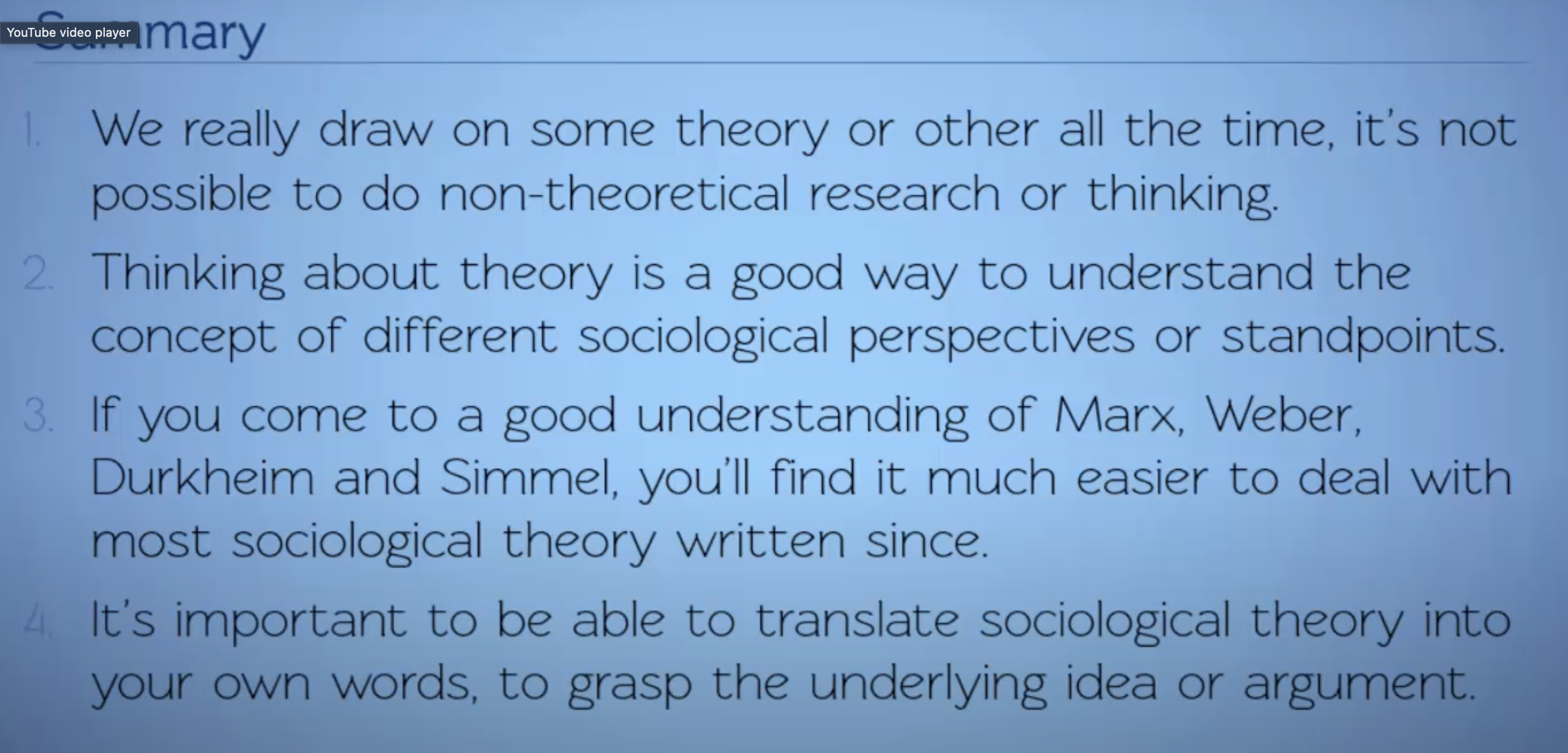
Durkheim
Structural Functionalism
Structural Functionalism is a sociological perspective that views society as a complex system made up of interrelated parts that work together to promote stability and order. An example of Structural Functionalism is the family unit. In this perspective, the family serves several essential functions for society:
Socialization: Families are crucial in teaching children norms, values, and customs, helping integrate individuals into the broader society.
Emotional Support: Families provide emotional support and stability, which can contribute to the overall mental health of individuals, promoting social cohesion.
Economic Cooperation: Families often function together economically, pooling resources, which enhances economic stability.
In this framework, if the family performs these functions effectively, it helps maintain societal equilibrium.
Sociological Perspective: Emile Durkheim viewed society as a complex system made up of interrelated parts.
Social Cohesion: He emphasized the importance of social ties and collective consciousness in maintaining order.
Functions of Institutions: Durkheim believed that social institutions (like family, religion) each serve vital roles in functioning society.
Anomie: He introduced the concept of anomie, a state of normlessness that can occur during social upheaval, leading to isolation and chaos.
Research Methodology: Advocated for the use of empirical research, treating social facts as things that can be studied scientifically.
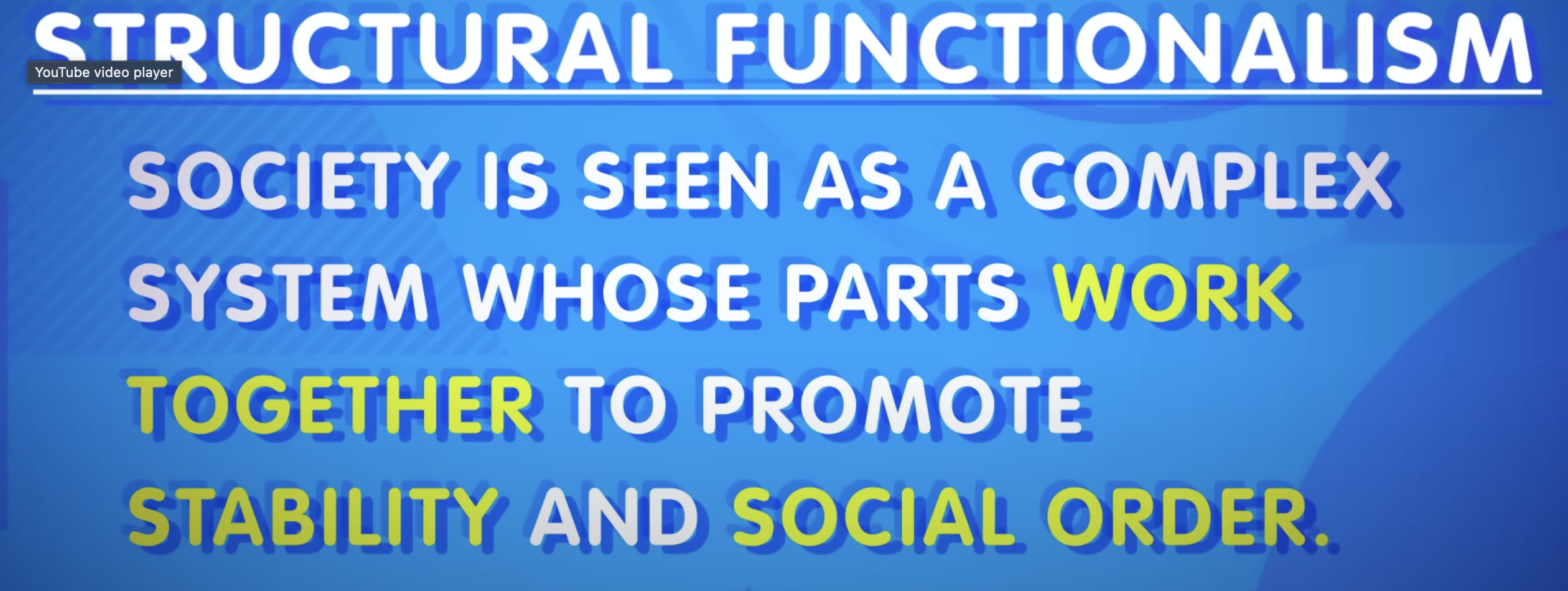
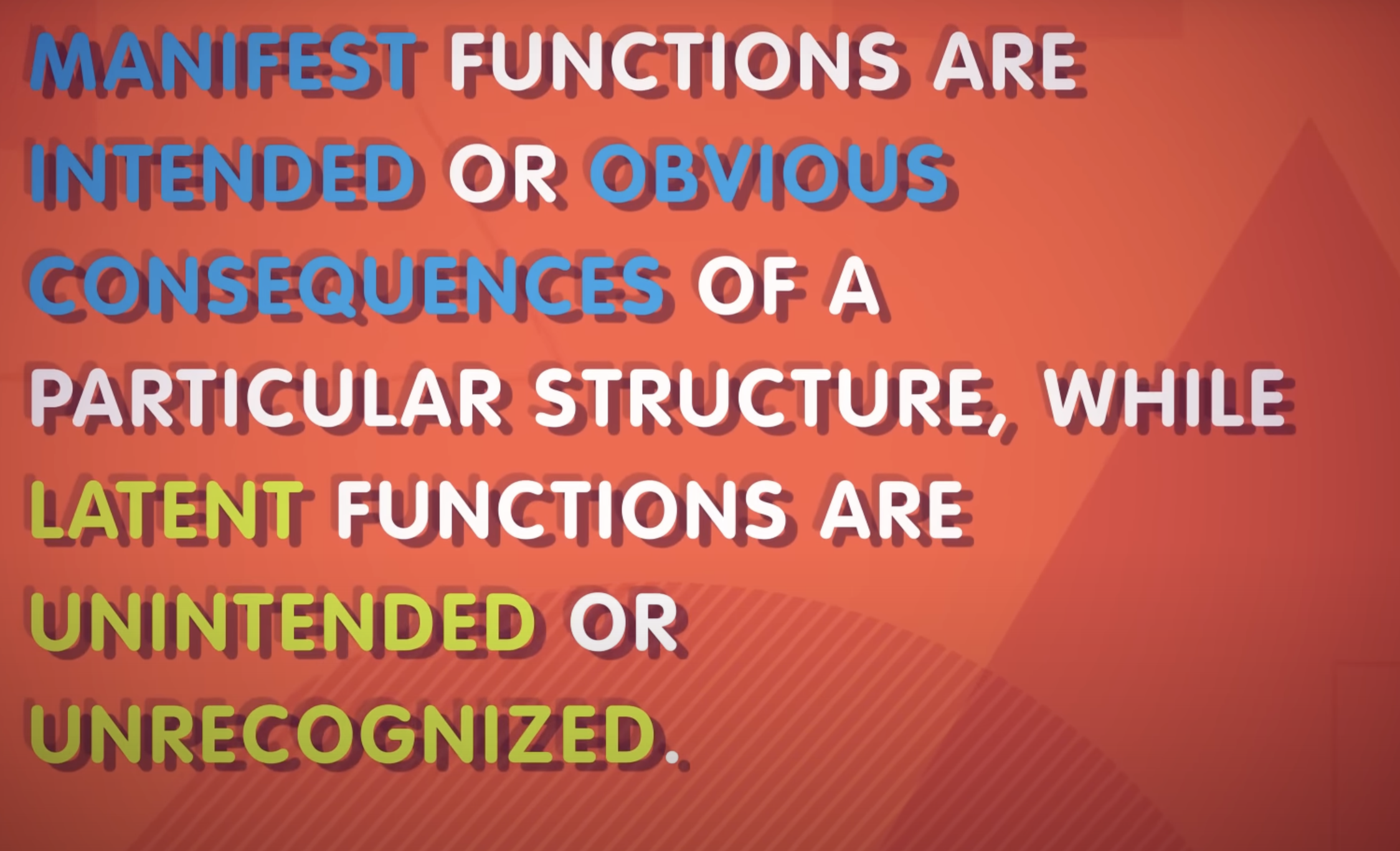
Social Dysfunction
conflict theories;
Conflict theories in sociology emphasize the role of coercion and power in producing social order. Unlike functionalist perspectives that view society as a harmonious system, conflict theories argue that society is characterized by competition and conflict between different social groups. This struggle arises from inequalities in wealth, power, and resources, leading to tensions and confrontations. Karl Marx is a foundational figure in conflict theory, focusing on the class struggles arising from economic disparities. Conflict theories also explore how cultural and social structures contribute to the ongoing struggles for power and resources.
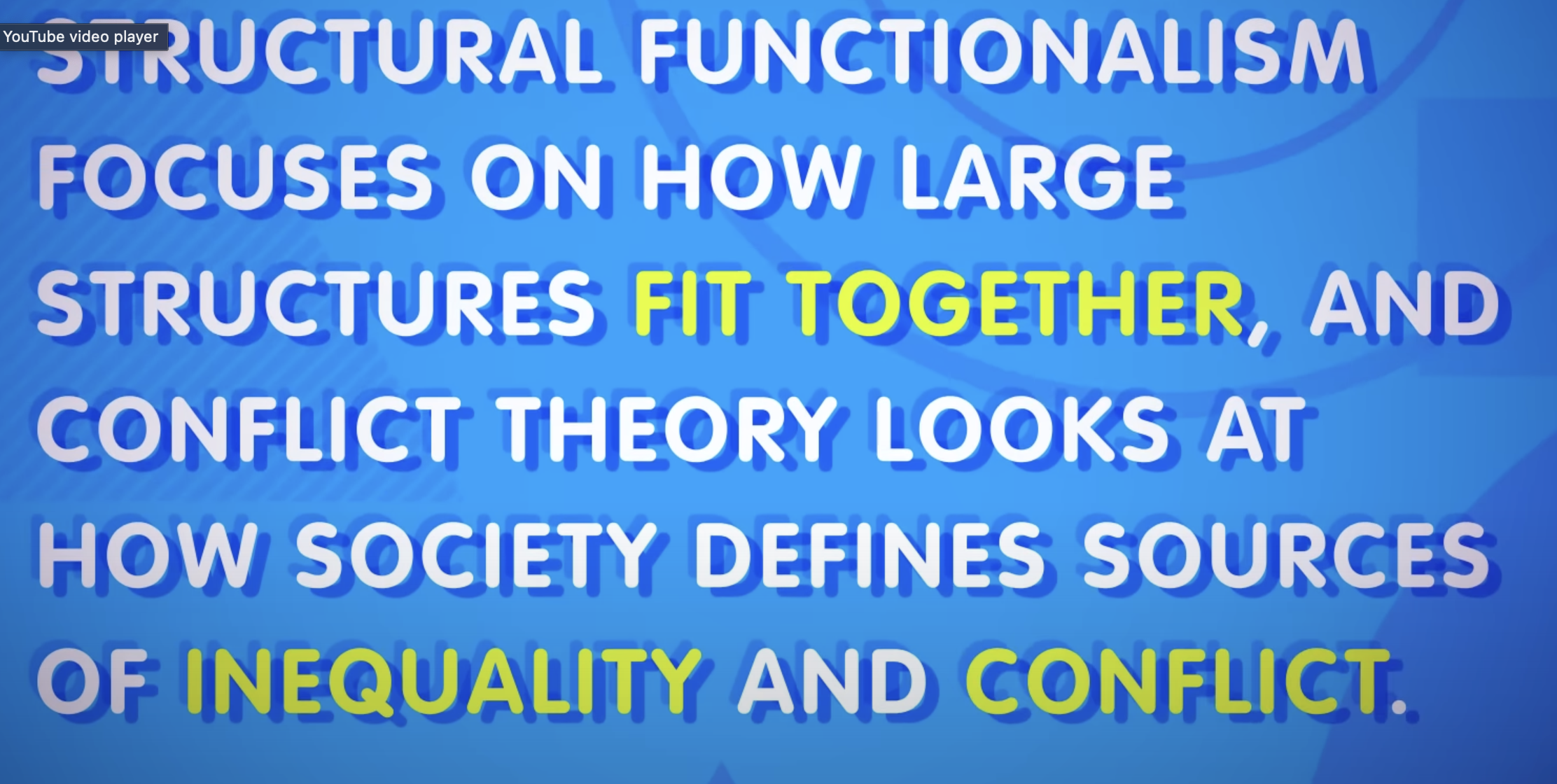
Max webber:
Page 29: Culture and Society Relationship
Society and culture
What are the connections between culture and our social worlds?
Does culture shape society?
Or does society shape culture?
Page 30: Sociological Theory
Definition: Theory as a conceptual tool for understanding society
Importance: Theoretical underpinnings are foundational in sociology
Reflection models: A quick look at some classical sociological thought
Marxism
Functionalism
Weberian theory
culture as a reflection of social life
Page 32: Marxist Perspective
Overview: Introduced by Karl Marx, considers sociological aspects through a conflict lens
religion
laws
customs you hold dear
marx say people make the gods in religion
Class- conflict
Material and historical condictions of society influencing culture
Page 33: Functionalist Perspective
Overview: Developed by Emile Durkheim focusing on societal functions
sees society in more harmonious way
society all contributing
Reflection models – society shaping culture
Marxism
Functionalism
Page 35: Weberian Perspective
Overview: Focused on meaning and social action in society
Key points for now
Sociology has a long interest in culture
Over time, sociological thought has shifted
Sociology influenced by the ‘cultural turn’
By the late twentieth century, questions of culture became central to sociological analysis
Page 39: Sociology of Culture vs Cultural Sociology
Distinction:
Sociology of Culture: Classical tools to study cultural artifacts
Cultural Sociology: Emphasis on processes of meaning-making and interpretation
Two perspectives
Sociology of culture
– Draws on traditional tools of sociology to understand cultural
objects, e.g. art and music
Cultural sociology
– Sees culture as processes of meaning making and seeks to
understand the complex webs of meanings that comprise culture
But this distinction is debated
Page 40: Cultural Sociology Insights
Conceptualized as a form of social psychoanalysis, revealing societal myths and encouraging new myth-making through understanding cultural objects.
